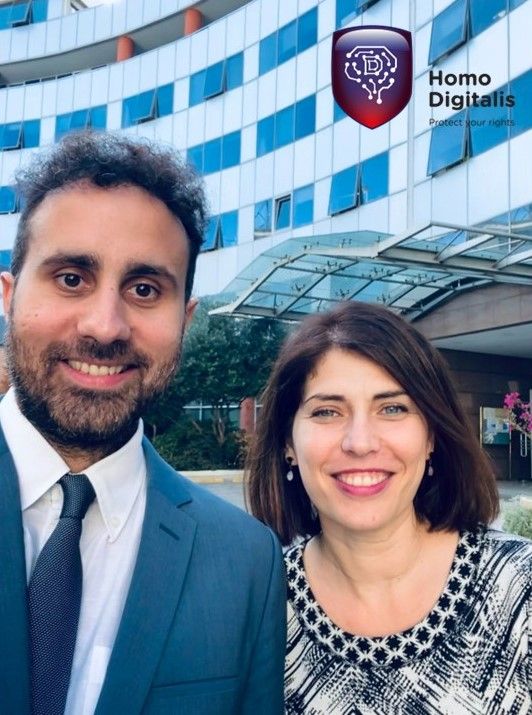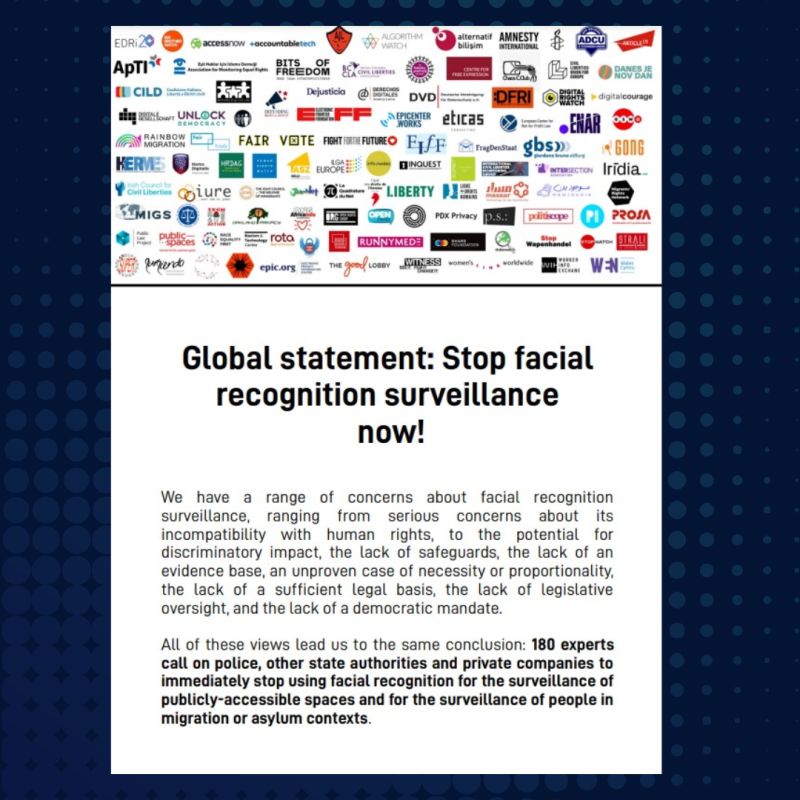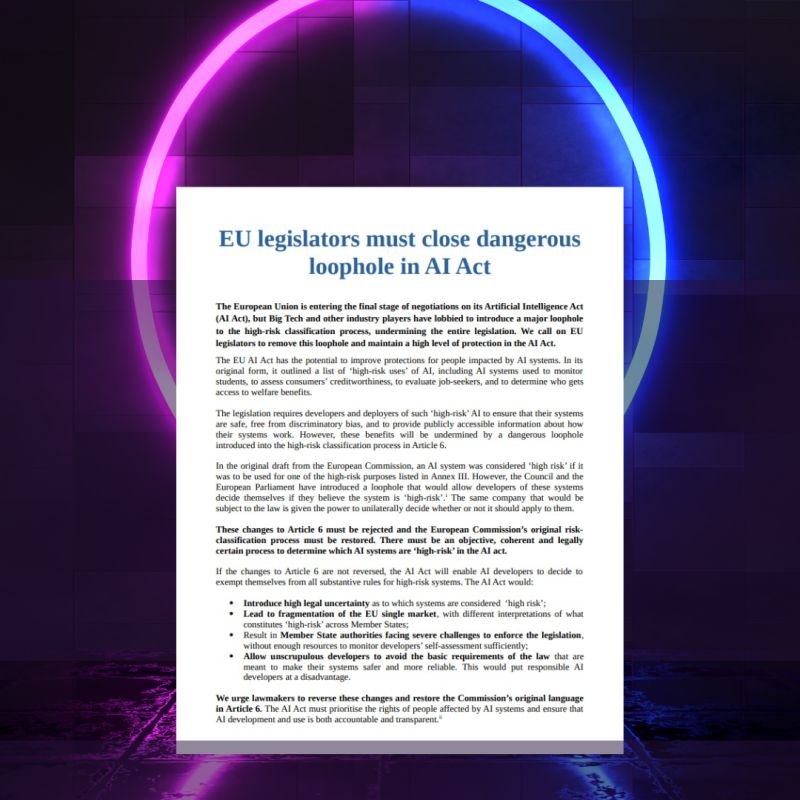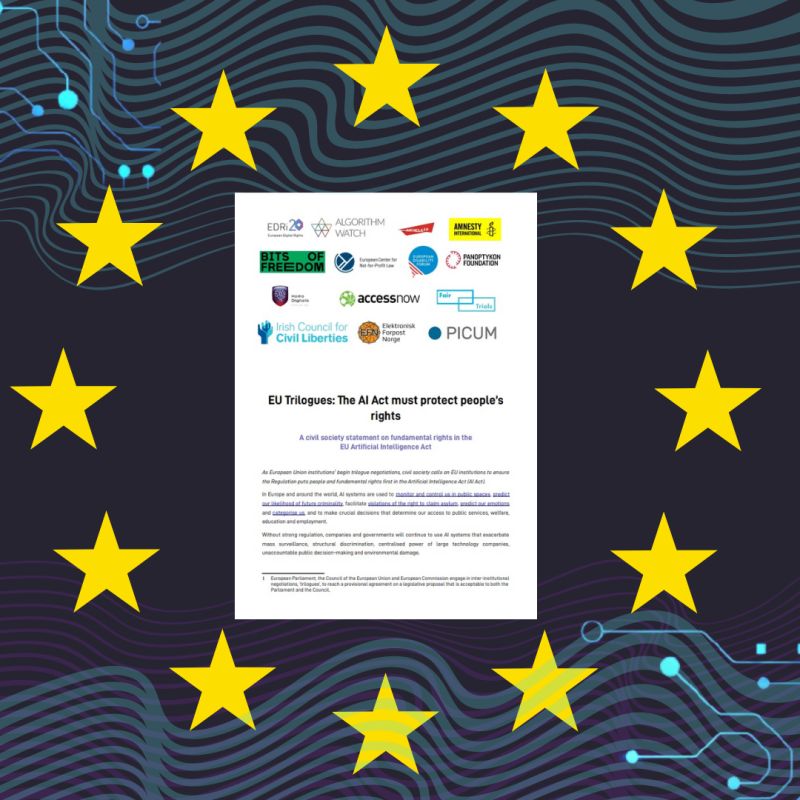Our joint research on children's safety and privacy online just published
YouGov, Humankind Research and Homo Digitalis conducted a survey on online safety and privacy for children in Greece, which shows high levels of concern among adults and young people.
-What percentage of Greeks are concerned about children’s online privacy?
-Do they believe that children have little control over how their data is collected and used?
-Who do Greeks believe is primarily responsible for protecting children online?
The survey also highlights the critical need to invest in raising awareness among Greek citizens, both adults and non-adults, on issues of privacy, protection and safety online.
You can find the survey and learn more about its results:
We submitted a joint letter with noyb.eu to the European Data Protection Board for its opinion in the Meta case
The European Data Protection Board (EDPB) will soon issue its most important opinion to date: it will determine whether we still have a realistic option to protect our right to privacy online!
In November 2023, Meta adopted the “Pay or Okay” approach. Since then, users are forced to either pay a “privacy fee” of €251.88 per year or agree to be monitored. The supervisory authorities of the Netherlands, Norway and Hamburg have therefore requested a binding opinion from the EDPB on this issue.
If “Pay or Okay” is legalised, companies in all industry sectors could follow Meta’s lead – which could mean the end of real consent in the use of our data.
Homo Digitalis has now joined forces with 27 other civil society organisations including noyb.eu, Wikimedia Europe, Bits of Freedom and Forbrukerrådet/Norwegian Consumer Council to urge the EDPB to issue an opinion that protects our fundamental right to data protection!
You can read our joint letter here.
We declare our full support for Freedom of the Press in Greece against SLAPP
On 25 January, C. Demetriades’ case against Reporters United & The Newspaper and journalists Nikolas Leontopoulos, Thodoris Chondrogiannos and Thanassis Koukakis for their revelations regarding the use of the PREDATOR spy software.
-We declare our full support for Freedom of the Press.
– We stand by journalists and their investigative work.
– We stand with the international, European and domestic journalists’ and human rights organisations calling for the immediate withdrawal of this abusive SLAPP lawsuit!
We met with the Ministry of Digital Governance for the DSA and the AI Act
Today, Lambrini Gyftokosta and Konstantinos Kakavoulis represented Homo Digitalis in a meeting with representatives of the Ministry of Digital Governance.
The topic of discussion was the progress of the implementation of the Digital Services Act (DSA) in Greece, as well as the developments at EU level regarding the regulation of AI.
We would like to thank the representatives of the Ministry for the very fruitful dialogue! We continue to follow the developments and actively participate in their co-shaping.
We published a joint study with EDRi on age verification online
Age verification is the process of predicting or confirming a person’s age online. Increasingly we hear from governments and technology companies that age verification is a tool we should use to ensure the safety of children online.
For example, in the EU, the draft regulation establishing rules to prevent and combat child sexual abuse (CSAR) proposes to enforce age verification forms for private messaging services (e.g. WhatsApp, Signal) and app stores operating in the EU, as well as to provide strong incentives to use this tool on all other digital platforms and services, such as social media.
The European Digital Rights network, including Homo Digitalis, has prepared a relevant study with a rich analysis of more than 30 pages, freely available here.
It is important to ensure that our children have access to age-appropriate online content. However, quick technological ‘fixes’ such as age verification online will not make a difference or really solve the complex problems we face. On the contrary, the adoption of age verification systems can have serious human rights implications, especially for the children they are intended to protect.
We call on European legislators to ensure full consistency with the principles of the rule of law in the AI ACT
We continue the actions of co-shaping political decisions at European level for the proposed European regulation on Artificial Intelligence (AIAct)!
Together with the Civil Liberties Union for Europe, European Center for Not-for-Profit Law Stichting, European Civic Forum and 60 other CSOs, we call on EU-level legislators to ensure that the proposed provisions are fully consistent with the principles of the rule of law, including transparency, accountability and access to justice. You can read our joint letter here.
Action is also coming at national level!
We demand an end to the use of mass biometric surveillance technologies by law enforcement authorities in public places
Today, 120 civil society organisations and 60 academics, scientists and other experts on new technologies are joining forces to stop the use of mass biometric surveillance technologies by law enforcement authorities in public places.
It is a great honour for Homo Digitalis to be part of this initiative. Already since 2020 with European Digital Rights we have been involved in the #ReclaimYourFace campaign, in which more than 250,000 people across the EU signed our petition to ban these practices.
You can read the joint statement here.
We express our concerns about Article 6 of the proposed AI legislation
As the European Union enters the final stage of trilateral negotiations on the proposed AI legislation, more than 150 civil society organisations, including Homo Digitalis, are concerned about a major loophole regarding the classification process for high-risk systems in Article 6!
Big tech companies have managed to convince the European Parliament and the Council to adopt proposed provisions that essentially leave them to decide for themselves whether the system they develop should be considered “high-risk” or not!
Read our joint statement to learn more about the challenges involved here.
We call on the European Parliament, the European Commission and the Council of the EU to prioritise fundamental rights over profits
As the EU institutions move forward in “trilogue” negotiations, the last stage for the adoption of the proposed EU legislation on AI #AIAct, we are taking a stand again!
150 civil society organisations, including Homo Digitalis, are calling on the European Parliament, the European Commission and the EU Council to put people and their fundamental rights ahead of profits!
In the coming period we intend to take initiatives in this regard at national level as well! You can read our letter here.








